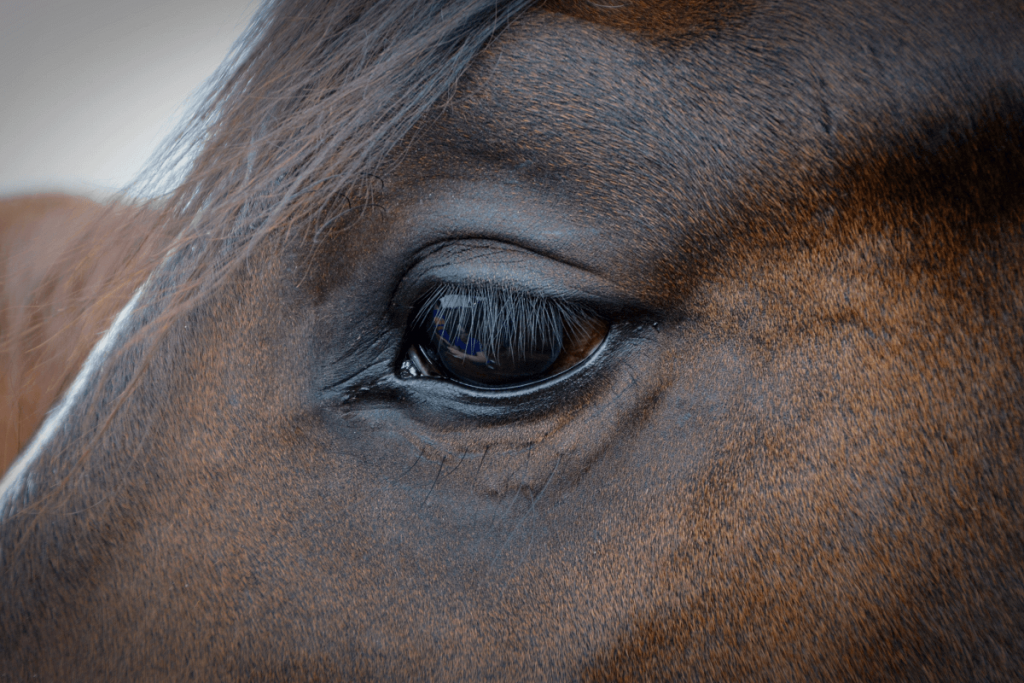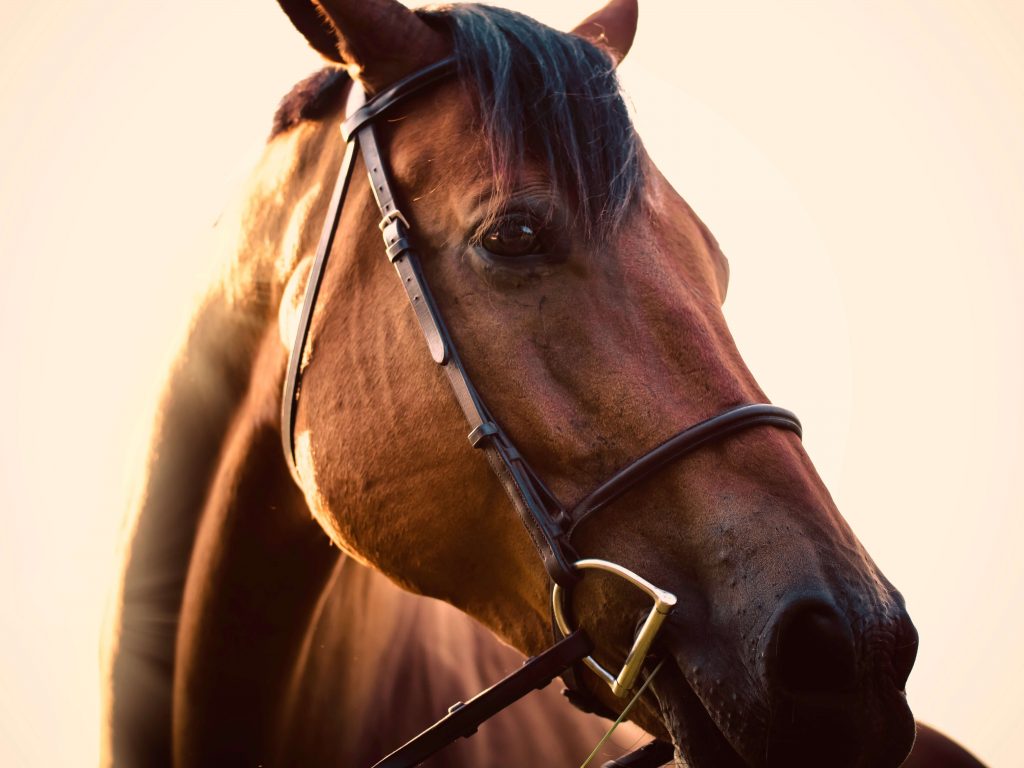Horses can suffer from a range of eye problems, ranging from infections and allergies to injuries and diseases.
Most of the eye issues our equine vets see in horses are typically related to trauma. This isn’t overly surprising due to the size and position of their eyes, and their accident-prone nature (as most owners can attest to!). Other potential causes of eye problems include environmental factors (such as exposure to dust), age-related changes, infections and certain medical conditions.
While there is a whole range of potential eye problems that horses are susceptible to, in this blog we will take a look in greater detail at three of the more common conditions we see in our area.
Eye Trauma
With their large eyes and curious nature, it’s not unusual for a horse to get an injury to the eye. This can be caused by a scratch on the eye by a twig, or by having a foreign body getting caught in the eye (such as hay). Such injuries can lead to abrasions to the surface of the eye – also known as corneal ulcers.
Eyelids are also another part of the eye area that is easily damaged – usually from your horse rubbing its head on things like fences or trees.
Key symptoms include:
- Tearing up
- Swelling of eye or eye lid
- Change in eye size
- Colour change
- Squinting
- Head shy
- Discharge
Eye injuries can lead to permanent damage and require immediate attention from a vet. Ulcers can also lead to corneal infections, which can further threaten the overall health of your horse’s eye.
Equine Recurrent Uveitis (ERU)
Equine recurrent uveitis (ERU), also known as moon blindness, is the most common cause of blindness in horses.
This autoimmune condition is progressive and results in repeated inflammation of the eye. The cause of ERU can be from injury or disease, however, certain breeds are more predisposed to be diagnosed with the condition, such as appaloosas, warmbloods and draft breeds.
- Redness
- Pain
- Reduced pupil size
- Cataracts
- Enlarged eye
Treatment is available in the form of anti-inflammatories for short-term relief, though it doesn’t address the underlying cause of repeated inflammation. Cyclosporine implants have started to be used more frequently to help preserve the vision of horses with ERU.
Cataracts
Cataracts are another common cause of blindness in horses. They are typically found in older horses, however, there are also genetic links to the condition which can lead to younger horses suffering from this condition.
Key symptoms include:
- Cloudiness of the lens of the eye
- Stumbling or walking into objects
- Shying
- Jumpiness
Depending on their severity and the age of your horse, cataracts may be a candidate for cataract removal surgery. This is a fairly common surgery for horses, however, it is an expensive procedure. If the cataracts are small, or only in one eye, your horse will most likely be able to adapt to this changed vision and cope quite well.
Key signs to look out for
It’s important to keep a close eye on your horse’s eyes, as there are dozens of other conditions that can lead to permanent vision loss if not treated in time.

General signs to look out for include:
- Swelling or discharge
- Redness
- Cloudiness
- Squinting
- Excessive blinking
- Watery eyes
- Lumps around the eye
- Head shaking or rubbing the eye frequently
If your horse displays any of the above symptoms, or you are worried that something looks a little different with one of their eyes, please get in touch with us straight away. Injuries, diseases and infections that affect the eyes can become serious quite quickly.
You can call us on 08 8318 1801.

